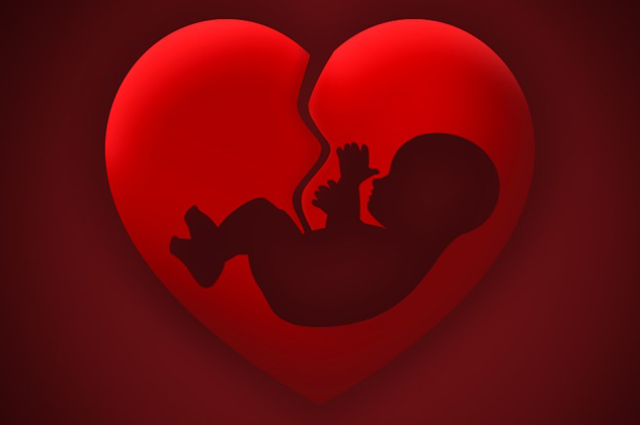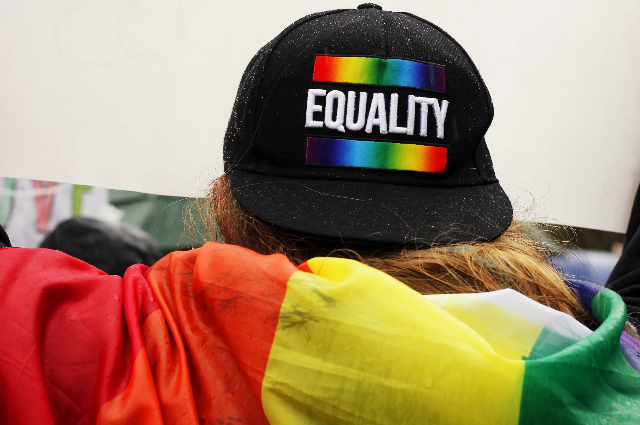
Anything permitted by law is said to be legal in the society and a system of regulations and rules pertaining to a particular country or community, that are enforced by the imposition of penalties are what are known as laws. It certainly is not egregious to suggest that human civilization has been sustained by the effective implementation of laws and the fundamental emphasis on a well set up legal system.
As natural as laws are to the society, so (perhaps even more so) is the incredible natural feeling of love within and to the species otherwise referred to as homo sapiens. Love is unexplainable in the sense that it can be shown and felt, yet invisible. Love, when put over all virtues; binds, said virtues together in perfect unity. Man, the civilized (educated) beast bears with one another of his own kind, thanks to a heart’s natural inclination to love.
Modern cases aren’t first instances of liberal law clashing with sincere love and they definitely don’t seem to be the last of such occurrences as legal issues regarding abortions, homosexual marriages and basic gender identities continue to rage across countries and continents. Due to obvious reasons, these deep issues cannot be looked at as being interrelated and hence they’ll have to be looked at, separately.
“Abortion”, a term that seems to lose it’s bitterness as it becomes a matter of choice in the modern society. Despite their unethical nature, when looked upon from a legal perspective, abortions are a mere matter of giving the right to choose, which is fundamental to the way in which society operates. To protect a pregnant woman’s liberty to choose, without any real legal hinderances is of utmost priority from a legal viewpoint. The only issue with such an argument is, ‘What of the baby’s right to live?’ and rightly so, because the question of when life begins is not a legal question. In fact, it’s not even a scientific question. Biology tells us ‘what things do’, it doesn’t tell us ‘what things are’. A biologist is no more of an expert on the question of “when life begins?” than the reader (or the writer of the article, for that matter). A baby being torn out of it’s only means of life support and being looked upon as an unsustainable lifeform has to be classified under criminal activity without the slightest hint of doubt. If the question is viewed as, “It’s alive, now can we keep it alive?”, then there’d be an obvious violation of the baby’s right to life, in the instance of abortions.
The United States is a nation that’s all too familiar with this issue of critical importance as it struggles to grasp the conflict between upholding and overturning (thereby, letting the states deal with it themselves) of the landmark decision of the US Supreme Court, Roe v Wade. The famed decision said that a woman’s right to privacy extended to the fetus/unborn child she was carrying. An overview of this logic would make it seem as though this should be the overwhelming general consensus, and rightly so, this seems like a reasonable legal solution. A question of, male consent being required (as is, in countries like Saudi) is totally terminated if it’s viewed purely as the privacy and the right to choose of a woman. A woman’s body comes under her own choice and privacy and hence, there aren’t any lingering doubts there.
A logical argument put against the US Supreme Court’s decision is that the grounds for overturning Roe v Wade are found in Roe itself, as their own reasoning assumes that a child is alive in the mother.
Obstetrics and Gynecology specialist, Dr. Anthony Levatino’s admission of second trimester DNA abortions embodies the vitality of the ethical viewpoint of abortions. As a doctor who’d performed over 1200 abortions, his description ran along the lines of stacking up body parts (of the baby) on the table and the necessity to maintain ‘inventory’ of the two arms, two legs and all pieces, because if not, the patient will be returning, infected, bleeding or dead. Moreover, by his own admission, as he saw the stacked up body parts on a particular instance, he didn’t see the wonderful right to choose nor did he see all the money that he’d made, all he could see was someone’s son or daughter who just had their right to life, violated.
In the case of the US, the declaration of Independence states that all men are endowed by their creator with certain unalienable rights and among these, is ‘life’. It is but a matter of love, to recognize an unborn child as a person and killing it as a crime. Simply put, you can’t just kill a baby.
Moving on to a ‘matter of pride’, homosexual marriage is a modern normal, with a vast majority of nations making major progress in terms of gay rights. Again, the legal perspective puts the focus on an individual’s or individuals’ right to choose and that of their privacy. On 6th September 2018, the Indian Supreme Court legalized consensual gay sex. Religious groups view it as being immoral but that’s a stand sans a legal basis.

The first-century Roman-Jewish scholar, Saul Paulus of Tarsus, who later came to be known as Paul, writes in one of his epistles,
“For even their women exchanged the natural use for what is against nature. Likewise, also the men, leaving the natural use of the woman, burned in their lust for one another, men with men committing what is shameful, and receiving in themselves the penalty of their error which was due.”An intellectual comprehension of such an argument grasps at the use of the words, ‘natural and unnatural’.
Despite leniency, making it a matter of choice, there’s a cause for concern if the unnatural is made normal with the use of fundamental laws that the society and civilization, as such is founded upon. To declare one’s love for another (regardless of basis) as illegal, would be inappropriate but even more so, would the foolishness of declaring the unnatural to be permissible and not only precariously but as a modern matter of pride. This remains a great cause for concern.
